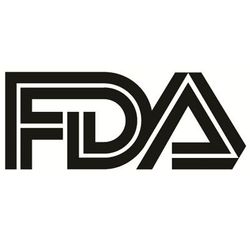
OR WAIT null SECS
Research Shows High Consistency of Biosimilars to Prominent Biologics in the US
An analysis from Taiwan suggest immunogenicity differences are limited between biosimilars approved by the FDA and their reference biologic products.
Nearly 2 dozen biosimilars to prominent reference biologics in the US were associated with a high degree of consistency to the marketed products, albeit with limitations to the available data and representative subgroups by which the US Food and Drug Administration (FDA) approved said biosimilars by its totality of evidence approach, according to new research.
A new study from a team of Taiwan investigators that which sought the impact and scale of immunogenicity for biosimilars relative to their reference biologics found there to be no increases in immunogenicity in available switching studies, as well as few post-marketing requirements pertinent to immunogenicity concerns.
However, the findings also showed gaps in data relevant to biologic biosimilar titers and evidential subgroup analyses that may help further evidence the clinical attributes of immunogenicity going forward.
A team of investigators led by Ching-An Cheng and Ai-Lei Jiang, of the School of Pharmacy and College of Medicine at National Taiwan University, sought to investigate comparative assessments of the immunogenicity profiles between FDA-approved biosimilars and their reference biologics. Being that the FDA requires biosimilar labeling to incorporate relevant information from their respective reference biologics labeling, investigators extracted data from the FDA review reports of biosimilar biologic applications for their comparative assessment of immunogenicity profiles.
“It is hoped that these findings will provide a better understanding of the current thinking of the FDA for anti-drug antibody / neutralizing antibody assessment, which may provide practical information regarding the degree of evidence required for the development of biosimilar monoclonal antibodies,” investigators wrote.
Anti-drug antibody presence in patients may result in alterations to their pharmacokinetic and pharmacodynamic outcomes, the team noted, while neutralizing antibodies may impact the efficacy of treatment due to effect on targeted receptors or the drug’s half-life; both factors are additionally linked to reactions including anaphylaxis, infusion reactions and other immunorelated outcomes.
Cheng, Jiang and colleagues assessed biosimilar biologic applications approved by the FDA with publicly available labeling and review documents online. Immunogenicity-related information including anti-drug antibody incidence and titers, neutralizing antibody incidence, and FDA correspondence-related immunogenicity concerns were collected from the applications. The team then compared biosimilar and biologic reference products’ differences in immunogenicity profiles based on non-switching data incidences.
The final analysis included 22 FDA-approved biosimilar applications from 2016 – 2021 corresponding to 6 reference products:
- Avastin
- Herceptin
- Humira
- Lucentis
- Remicade
- Rituxan
Each included biologic was approved under the FDA’s standard review process; 5 (22.7%) were issued ≥1 Complete Response Letter (CRL) in application.
Investigators observed that maximum differences in anti-drug antibody and neutralizing antibody between biosimilars and their reference biologic products predominately fell within ranges of 15% and 20%, respectively. The most extreme differences in such immunogenetic outcomes were -23.4% and 66.7%, respectively.
The team additionally reported that immunosuppressants were more likely than antineoplastic agents to include patients positive for anti-drug antibodies (11 [100.0%] vs 8 [80.0%]) and neutralizing antibody (11 [100%] vs 3 [30%]). They observed a “high degree of consistency” between biosimilars and reference products in terms of impact on pharmacokinetic parameters, as well as no increases in immunogenicity in available switching trials.
Though a majority of the approved biosimilars (n = 16 [72.7%]) were issued post-marketing requirements not directly related to immunogenicity concerns, investigators noted that the FDA appeared to consider the totality of evidence assessing the clinical consequences of differences in product immunogenicity when applicable.
Cheng, Jiang and colleagues concluded that the observed biosimilars with available data for assessment were associated with high degrees of consistency with regard to their biologic reference products. That said, subgroup participant populations were limited in FDA application-supportive data that would implicate a need for greater conclusive analyses beyond the current standard.
“Additional information on titers and subgroup analysis are suggested,” investigators wrote. “More research is needed to elucidate the critical attributes of immunogenicity impact and to aid in forming cost-effective strategies for biosimilar development.”
References
Cheng CA, Jiang AL, Liu YR, Chang LC. Investigation of immunogenicity assessment of biosimilar monoclonal antibodies in the United States [published online ahead of print, 2023 Aug 27]. Clin Pharmacol Ther. 2023;10.1002/cpt.3033. doi:10.1002/cpt.3033


